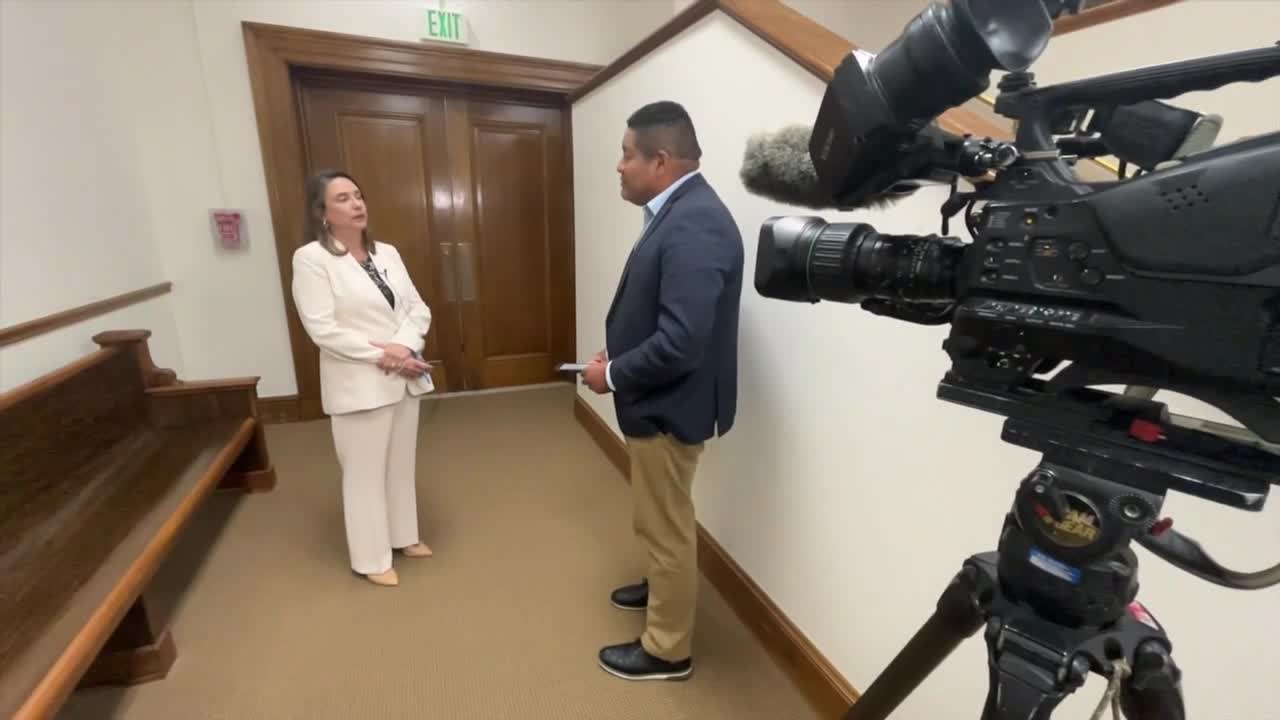DENVER — Community leaders and Denver’s independent police monitor are pushing back against efforts to change how some Denver police officers are disciplined.
For nearly an hour on Wednesday, Lisabeth Pérez Castle, who serves as the city’s independent monitor, spoke to the Denver City Council’s health and safety committee and shared her concerns about Denver Police Chief Ron Thomas’ proposal to change his department’s disciplinary policy.
“My chief concern is that it is an attempt to avoid responsibility, accountability for officers, and that it is a policy that is being unilaterally changed without significant engagement by the community,” Castle told Denver7.

Right now, most Denver Police Department (DPD) officers who are disciplined for violating policy are given a written or oral reprimand. That’s what happened with 94 of the 156 officers who were disciplined last year, according to the independent monitor’s annual report. It also shows 28 officers lost some of their time off, and 16 were suspended.
Neither Thomas nor anyone from DPD attended Wednesday’s council meeting.
“I have a lot of questions. Most of them are for DPD,” said Denver City Council Member Amanda Sawyer. “They should be in this room. That they are not here is extremely concerning to me.”
The chair of the health and safety committee, Councilman Darrell Watson, explained that Thomas had agreed to give his own briefing on his proposed policy change to council members next week. Denver7 requested an interview with Thomas, but DPD said he was unavailable.
Denver7 tracked down video of Thomas speaking with the Denver Citizen Oversight Board last month about his proposed policy change.
He called his department’s traditional approach too ineffective and time-consuming. He wants to move the department to an education-based discipline (EBD) model. Under that model, instead of reprimands or other disciplinary actions, officers accused of low-level offenses would receive additional education and training.
“There's lots of evidence, both inside and outside of policing, that shows that this is a better way to change behavior," Thomas said.
According to Thomas, providing officers with training will reduce recidivism and resolve discipline cases much faster.
"Rather than taking nine months to come to a resolution, we can respond back to a complainant and let them know that the officer is being trained to understand exactly what the department expectation and what the community expectation is,” Thomas said. “I think that's a far better result."
However, leaders believe the community should be involved in any attempt to change DPD's disciplinary policy, since the community was involved in developing it.
“To not have community be a part of that is really a slap in the face of all of our efforts from years ago,” said former mayoral candidate and social justice advocate Dr. Lisa Calderón. “It can't be done without the people who are the subject of that abuse having a voice.”

In a statement to Denver7 late Wednesday, DPD defended the EBD model.
“The Denver Police Department has and will continue to hold officers accountable. The EBD process does not remove accountability, but rather helps officers understand their mistakes, while teaching them the proper method to handle the issue if they are to encounter it in the future,” the department said. “EDB is strictly for the lowest level of complaints and DPD believes this will do more for an officer than an oral or written reprimand, as its goal is to change behavior.”
DPD also responded to claims that it had not sought community input.
“DPD did conduct outreach, and the majority of those contacted feel that EBD is a positive program,” the department said. “Additionally, the OIM presented 28 total recommendations for consideration; DPD fully incorporated 24 and partially incorporated 2 of these recommendations.”
Castle said there have been significant problems with EBD in other cities that have adopted it.
“It's not formal enough. There's too much discretion. It's being overused and ignores community complaints,” said Castle.
She hopes a task force will be formed to review the changes and provide guidance and input.






